Today October’s CPI is released. At the time of this writing, the markets are suggesting a 60% probability of another rate reduction in December. The markets have also lowered the odds on the scope of future reductions.
Treasuries across the curve have been crushed since September as economic activity has been stronger than anticipated. The narrative is rising about the potential inflationary ramifications of tariffs.
While I do believe in free trade, I question whether or not tariffs will produce the expected inflationary surge? Will the change in value of the respective currencies offset part of the impact of any tariffs? Perhaps a larger question, will countries defend their currencies?
Many are comparing today to the Smoot Hawley era and expecting comparable results. I ask is this an appropriate analogy given how the global financial markets have evolved and have since become interlinked over the past 94 years.
The consistency of the last 10 years is the expected results have not occurred.
Commenting further about tariffs, what are the odds that such a policy will be implemented? Is this more bluster than reality? Are the proposals secondary in nature given the natural evolution that is occurring in global trade as the East has weaponized the flow of goods and the West has weaponized the flow of capital.
Reliability and availability have replaced price as the determinate of a purchasing decision. Countries are now re-onshoring vital productive capacity from their adversaries.
Trade from 1945-1990 was an extension of foreign policy. The philosophy was that lopsided trade arrangements was cheaper than fighting wars. If countries are prospering (initially was geared towards Europe and Japan), the lower the odds that the country would gravitate towards communism.
After the Berlin Wall fell, this philosophy, which was already widely accepted, global trade ballooned and over the years countries eventually exported vital industries to the lowest cost producer out of the quest for greater margins and profits.
An argument can be made that 2020 ended this great experiment ended with the onset of COVID and the Ukrainian invasion two years later.
Analysts expect the CPI to increase by 0.2% and the core CPI up by 0.3%, consistent with the prior month increase. Year over year, a 2.6% and 3.3% gain is forecasted, respectively.
Last night the foreign markets were down. London was down 0.06%, Paris down 0.19% and Frankfurt down 0.16%. China was up 0.51%, Japan down 1.66% and Hang Seng down 0.12%.
Futures are down about 0.25% as the CPI met expectations. The 10-year is up 3/32 to yield 4.42%.




